Australian Tropical Rainforest Plants - Online edition
Causonis trifolia (L.) Mabb. & J.Wen
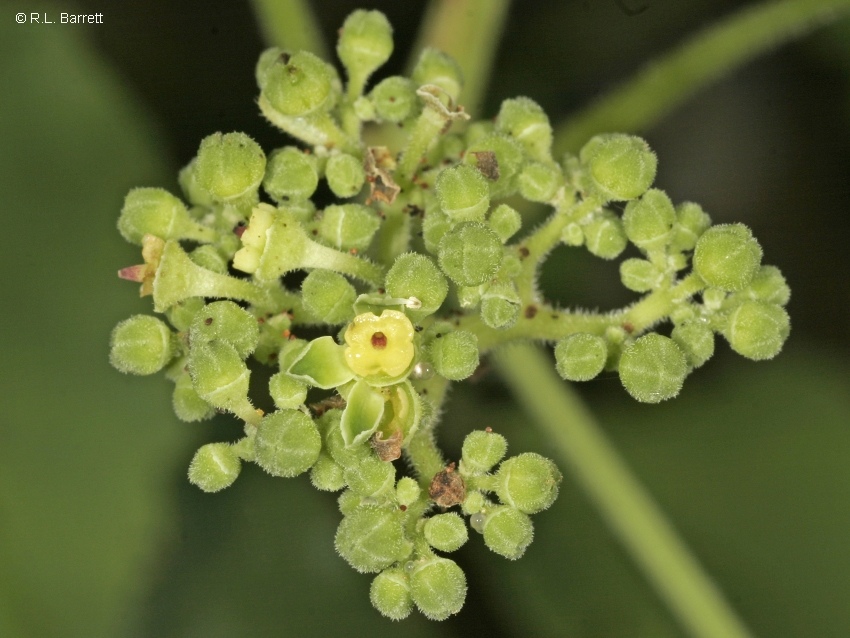
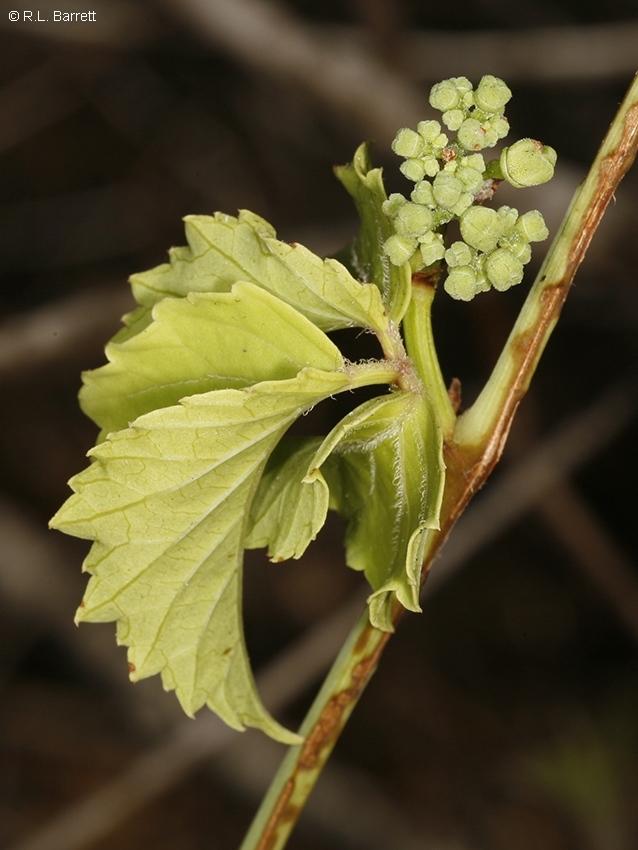
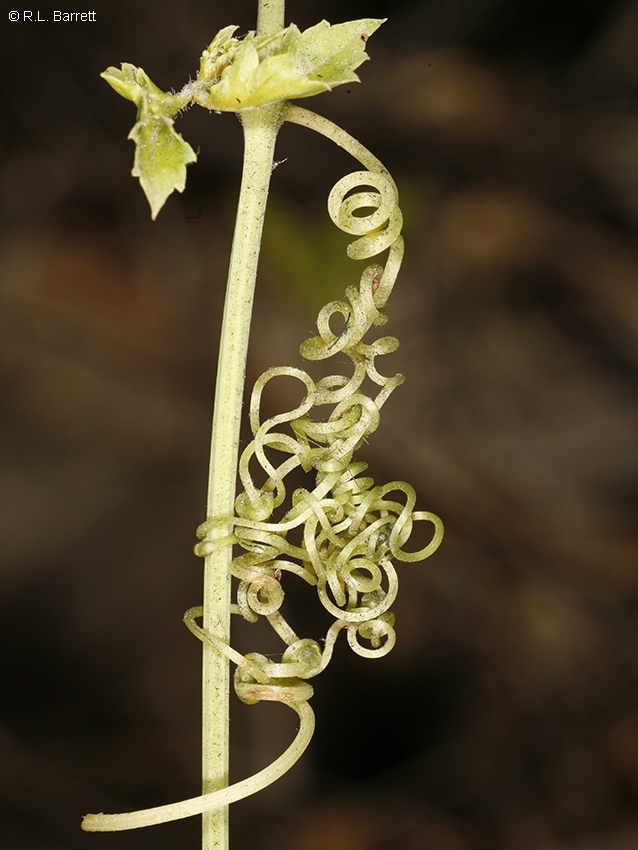

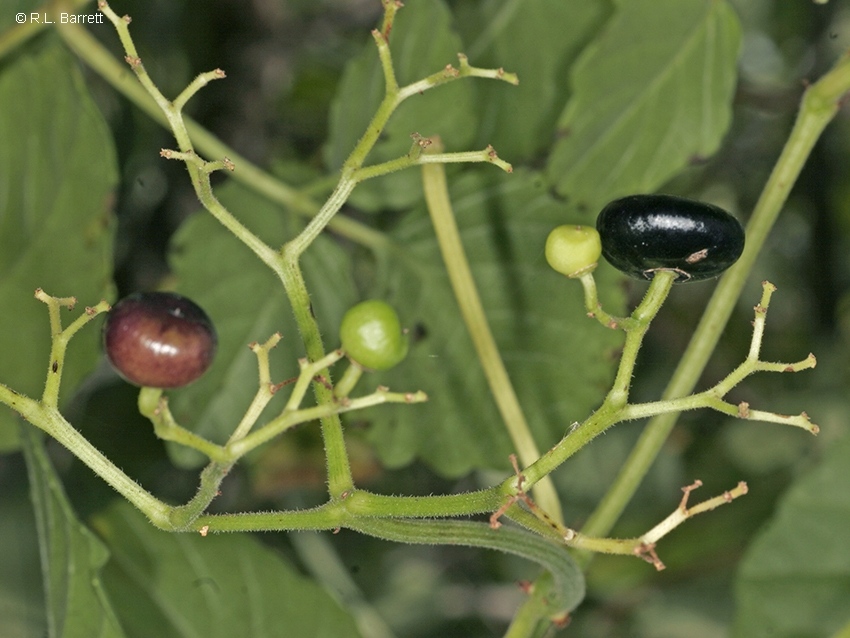

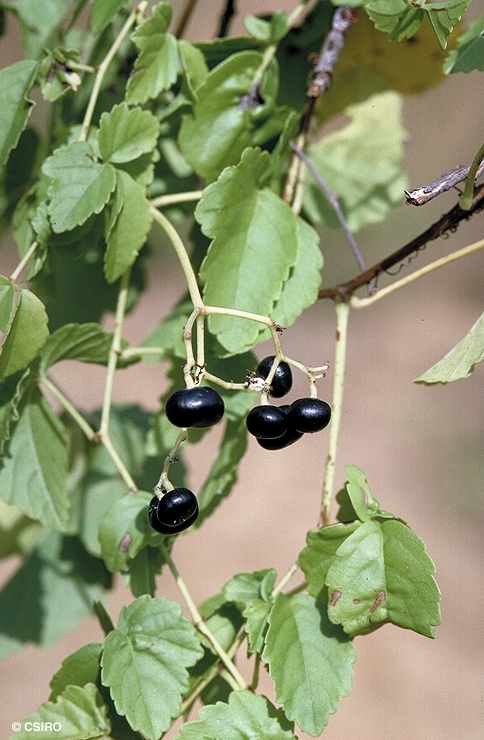
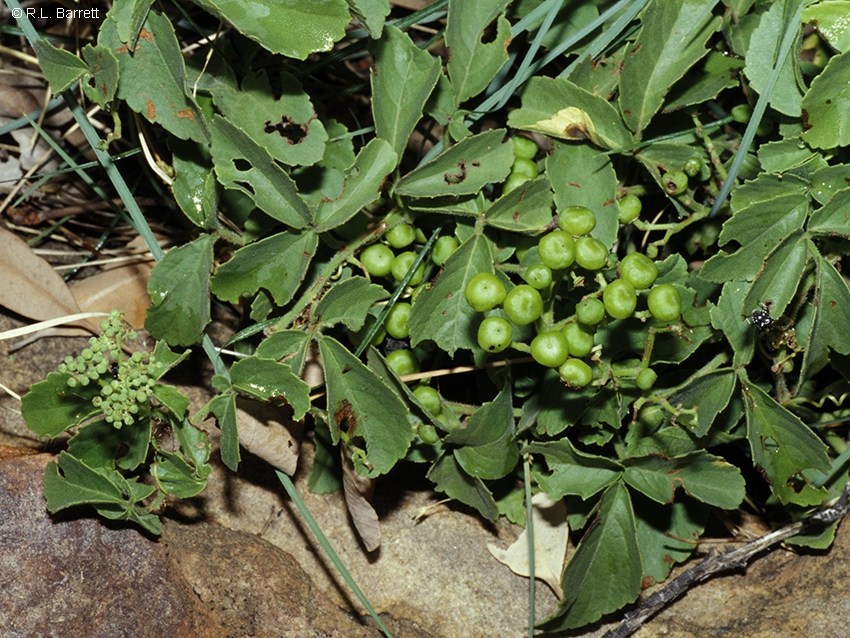
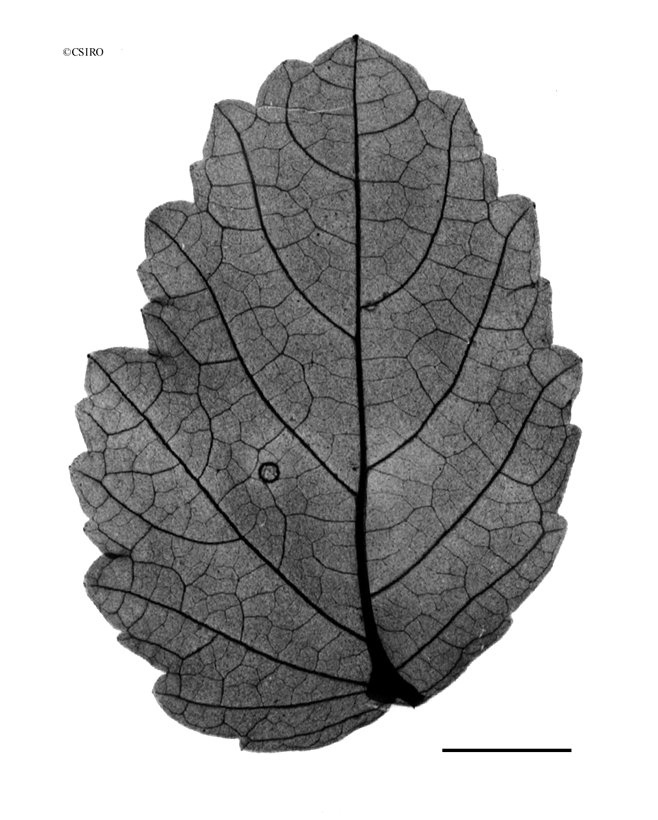
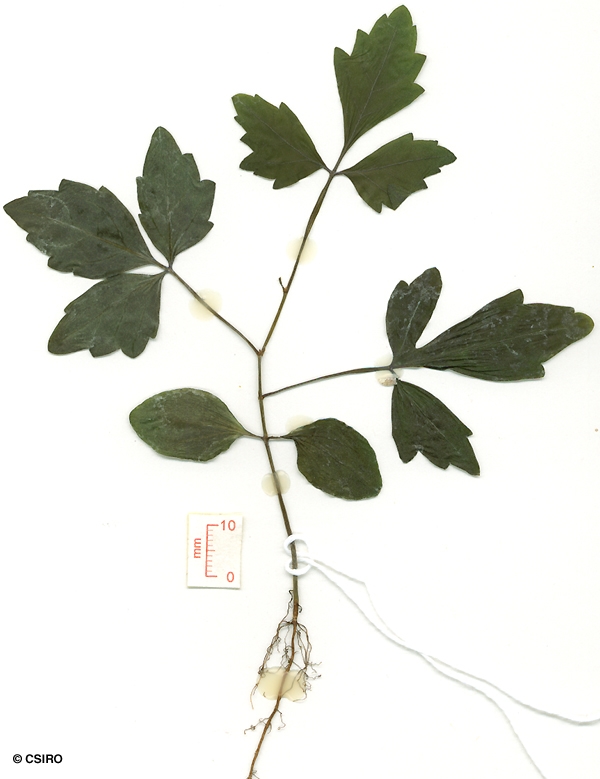

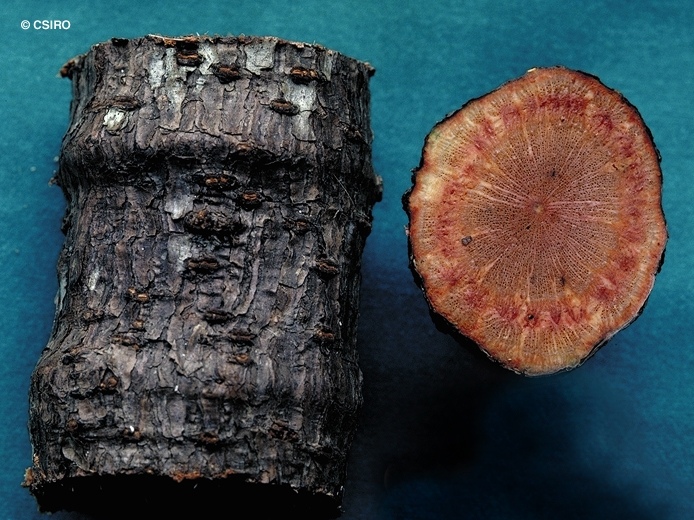
Mabberley, D.J. (2017) Mabberley's Plant-Book Edn. 4: 1101
Cayratia, Threeleaf; Native Grape; Threeleaf Cayratia; Slender Water Vine; Vine, Slender Water; Grape, Native
Vine stem diameters to 7 cm recorded.
Stipules triangular, about 2-5 mm long, scarious and caducous. Lateral leaflets usually have a single lobe on the outer edge, i.e. the side away from the middle leaflet. Middle leaflet usually longer than the lateral leaflets. Leaflet blades about 3-9 x 2.5-9 cm, lateral leaflet stalks about 0.3-0.5 cm long. Stalk of the middle leaflet up to 1.5 cm long. Most hairs of the underside of the leaflet blades tend to be hooked particularly on the midrib. 'Oil dots' readily visible with a lens. Tendrils leaf-opposed, compound with several branches, each branch ending in an expanded structure resembling an haustorium which grows in cracks and crevices. 'Oak grain' in the twigs.
Inflorescence leaf-opposed or terminal. Flowers about 4 mm diam. Calyx cup-shaped, about 0.2 mm long, lobes absent. Petals about 2.5 mm long, apices hooded, outer surface clothed in hairs. Staminal filaments about 1.5 mm long. Disk lobed, pale yellow, about 0.8 mm high. Style pyramidal. Ovules two per locule.
Cotyledons elliptic to ovate, about 25-26 x 16-17 mm. First leaf simple and toothed or bifoliolate tending to trifoliolate. Second leaf trifoliolate. Lower surface clothed in hairs, upper surface glabrous except for the midrib. At the tenth leaf stage: middle leaflet blade about 3.5-4 x 2.2-2.7 cm, stalk about 0.8-1 cm long. Lateral leaflet blades about 2.5-3.5 x 2-2.5 cm, bases oblique, stalks about 0.2-0.6 cm long. Seed germination time 20 to 192 days.
Occurs in WA, NT, CYP, NEQ and CEQ. Altitudinal range from near sea level to 750 m. Often grows in open forest climbing up the stems of trees with persistent flaky bark but grows as well in vine thicket and monsoon forest. Also occurs in Asia, Malesia and the Pacific islands.
This species has been used medicinally in India. Cribb (1981).
Cayratia trifolia (L.) Domin, Bibliotheca Botanica 89(4): 924 (1928). Cissus trifolia (L.) K.Schum., Fl. Kaiser Wilh. Land : 71 (1889). Columella trifolia (L.) Merr., Philipp. J. Sci. 11: 132 (1916). Cissus acutifolia Poir., Encycl. Supp. 1: 106 (1810). Vitis trifolia L., Species Plantarum 2: 203 (1753), Type: Habitat in India. Cissus cinerea Lam., Tabl. Encycl. 1: 332 (1791), Type: Lamk. Herb.; holo: P. Cissus carnosa Lam., Encyclopedie Methodique, Botanique 1: 31 (1783), Type: On trouve cette plante dans lInde. Vitis psoraliifolia F.Muell., Fragmenta Phytographiae Australiae 2: 75 (1861), Type: In nemoribus ripariis ad fluvium Victoriae. Syntypes: K, GH, MEL. Cissus obtusifolia Poir., Encycl. Suppl. 1: 106 (1810), Type: Herb. Lamk.; holo: P. Cissus psoraliifolia (F.Muell.) Planch., Monographiae Phanerogamarum 5 : 567 (1887). Cissus crenata Vahl, Symb. Bot. 3: 19(1794), Type: Wall. Cat. 6021; holo:K. Cayratia carnosa (Lam.) Gagnep., Notul. Syst. (Paris) 1: 347 (1911).





